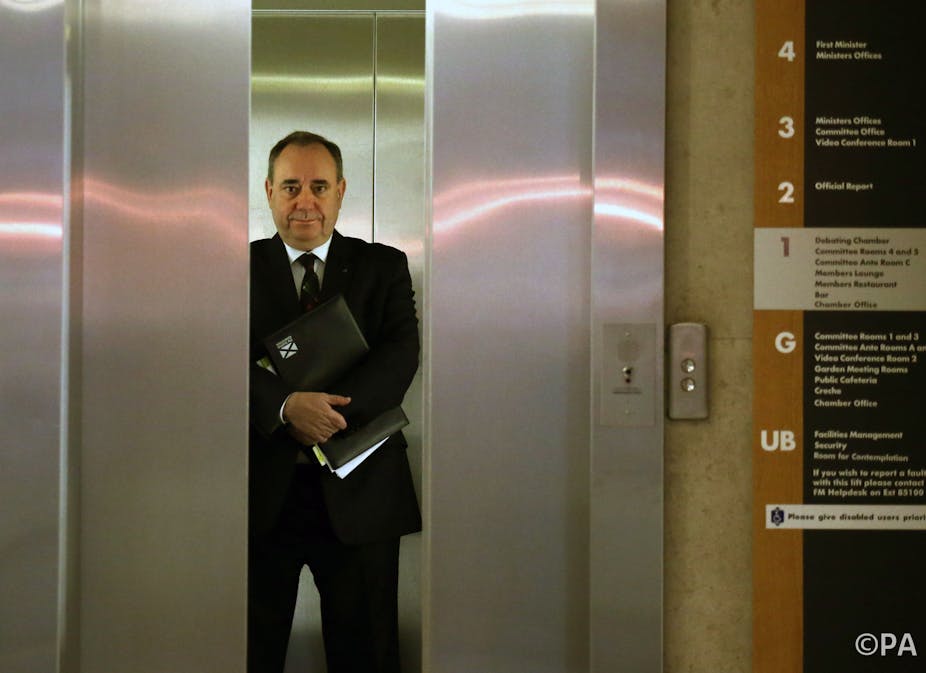Alex Salmond might not be the leader of the Scottish National Party anymore, but that hasn’t stopped him from speaking out very loudly about his party’s potential role as kingmaker in the 2015 election.
First he set his sights on scuppering the Conservatives if they end up in a minority government after May 7. He said he would block the Queen’s Speech at the opening of parliament to ensure that David Cameron was “locked out” of Downing Street.
His comments attracted significant attention, with the Conservatives describing his plan as “deeply sinister”. In reality, Salmond’s bluster should be taken with a rather large pinch of salt. It will do the SNP no favours on the morning of May 8.
For starters it assumes that Cameron would actually want to rule in a minority government should the Conservatives be the largest party in a hung parliament.
It has been reported that electoral strategists in Number 10 would prefer a minority government to a coalition and a sizeable group of around 50 MPs has already been calling for this in the current parliament.
But none of this makes a minority government inevitable. Back in May 2010 no one thought that a Conservative-Liberal Democrat coalition would survive this long. There is no reason why the Conservatives might not seek to form another coalition – however unlikely it might seem now – in the face of a messy House of Commons and unpredictable confidence and supply arrangements in which smaller parties would agree to support them on key measures such as budgets and votes of confidence.

Salmond’s plan also seems to take little account of the concept of fixed-term parliaments. Simply defeating the motion on the government’s planned policy programme isn’t going to cut the mustard. It will do nothing to trigger a new election. For that to happen, the government would have to be defeated in a specific vote of no confidence. So his plan, at the very least, needs a little more work.
Salmond recently launched a book titled The Dream Shall Never Die, and with Labour ever so slightly ahead in the polls this week, all this talk of locking and blocking may come to nothing more than a dream.
What Salmond really needs to think about is what will happen in the event of a minority Labour government. Shortly after speaking out against the Tories, he said that the SNP would back Labour “unconditonally”. Labour are adamant that they don’t want any formal coalition with the SNP and Nicola Sturgeon - Salmond’s replacement - is similarly trenchant in her opposition such a union. Last year she wouldn’t rule out working with Ed Miliband, but has since changed her tune, implying that any talk of a formal coalition is nonsense. If she is bluffing, it’s for a reason and Salmond’s antics won’t have helped.
Salmond’s comments this week have actually played into Cameron’s hands, allowing the Conservatives to step up their argument that the SNP and Labour are in cahoots. In the final Prime Minister’s Questions of this parliamentary session, Cameron described the Labour leader as Salmond’s poodle, building nicely on the Tory scare strategy around a possible SNP-Labour coalition. And with Ed Miliband having repeatedly ruled out a coalition with the SNP, the outcome of Salmond’s cunning plan may simply be to lose allies before he’s made them.

